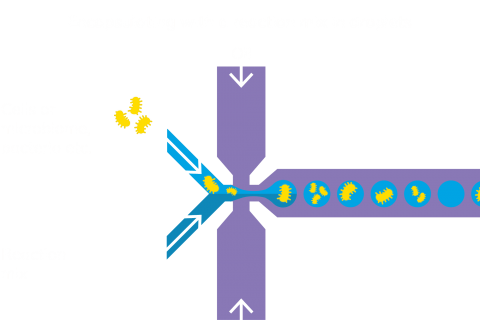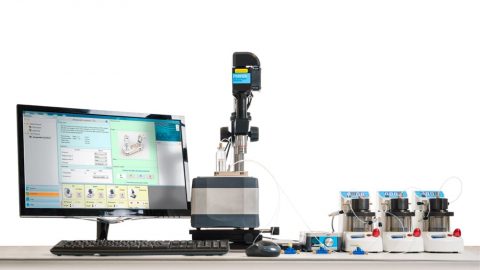Screening of individual cells for an enzymatic activity or antibodies using FACS is an efficient approach for library screening. An example of an application that can use FACS sorting of libraries is directed evolution for protein engineering which can be very useful in activities such as improving antibodies and other therapeutic proteins. Since FACS devices work with aqueous buffers as sheath fluid, during the webinar we’re focusing on demonstrating the production of double emulsions (water-in-oil-in-water) using our µEncapsulator System. We’re also showcasing the details of our system set up, shortly summarising the factors influencing the droplet size and production rate.

Read our Application Note to learn more about the production of a double emulsion on the µEncapsulator System using a 30µm µEncapsulator 1- 2 Reagent Droplet Chip. The document provides a comprehensive overview of the methodology and showcases the capabilities of the system.

This webinar introduced our Dolomite’s µEncapsulator System. It is an exceptional solution for this application as it enables the simple, quick and reliable encapsulation of single cells, DNA and/or functionalized beads in high precision, monodisperse picoliter droplets.